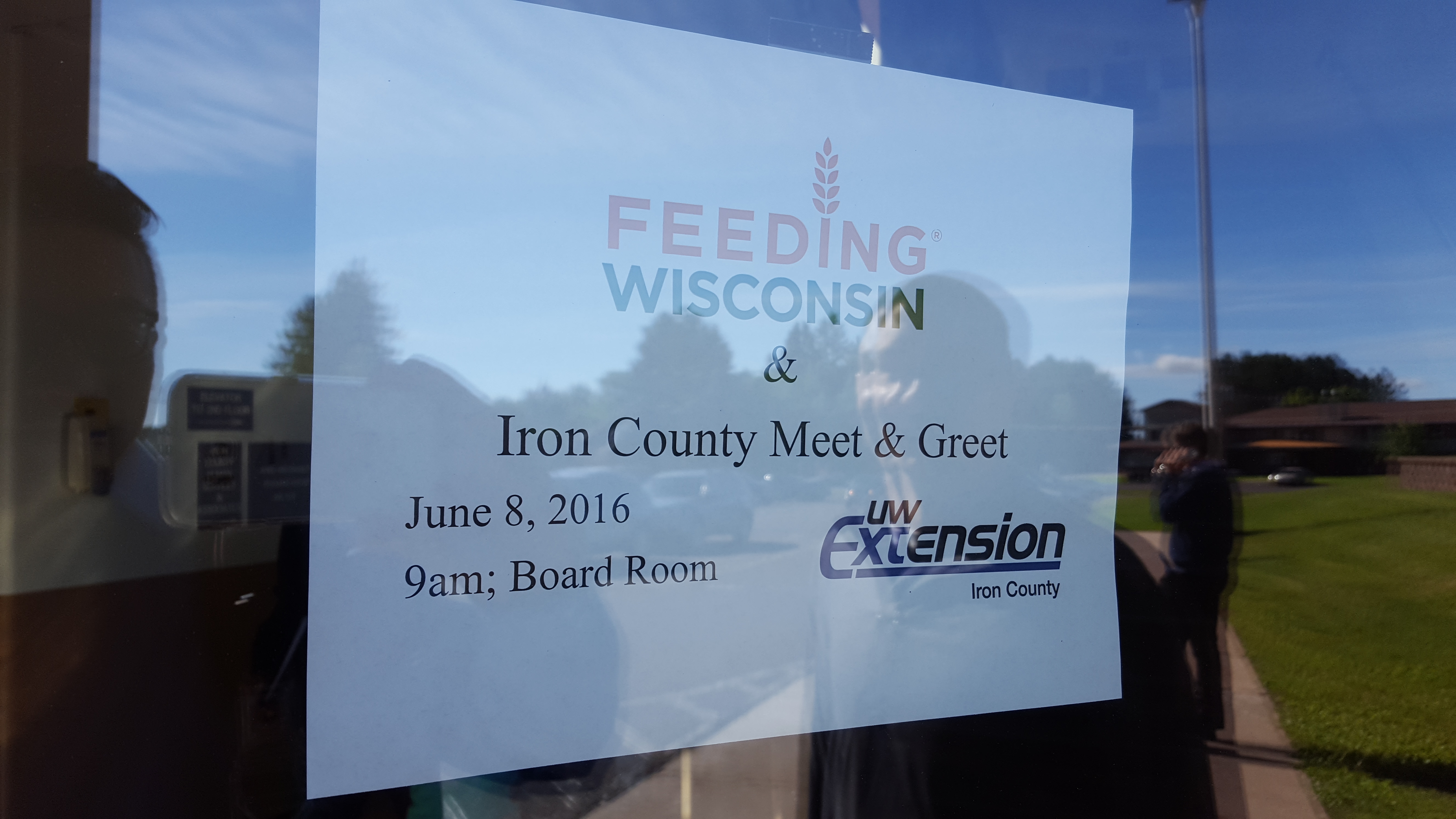The Self-Reliance of Asking for Help
| Comments

As part of our AmeriCorps Planning Grant, we are in the Northwoods of Wisconsin learning from the community about how we might be able to help them fight hunger. We've been lucky to be able to partner with UW Madison's School of Human Ecology and the research team, led by Dr. Lori Bakken, has been very intentional in engaging local communities in a participatory manner to ensure that a potential program would be tailored to their needs.
To better understand the challenges rural communities face and how an AmeriCorps program could be deployed to address them, we met with Vilas County Extension and the Vilas County Food Pantry yesterday and earlier today, we took part in a county stakeholder meeting convened by Iron County Extension in Hurley Wisconsin.
Many common themes emerged: the prevalence of seasonal employment, the vast distances between services, and the lack of dependable transportation. An AmeriCorps member could easily help with existing efforts to address these challenges. However, there was one challenge that local stakeholders highlighted that has no easy solution: Sisu.
While untranslatable from Finnish, Sisu approximately means being imbued with internal strength (From Wikipedia: "...loosely translated to mean stoic determination, grit, bravery, guts, resilience, perseverance and hardiness...").
Sisu is a cultural touchstone and something that many of our friends and neighbors in the Northwoods have. In practice, it might mean that someone with Sisu might not go to the doctor, preferring rather to gut it out on their own.
There's something like Sisu in American culture too - rugged individualism.
These are great characteristics to have. Grit and self-reliance help people adapt to difficult circumstances, be independent and deepen a sense of self-efficacy and pride. These are all good things and are the base of our shared cultural wisdom that struggle builds character.
But I can't help but wonder about the moment when Sisu and rugged individualism become maladaptive. For example, there is a difference between someone who has Sisu who is hunting and growing their own food and the person who simply refuses to ask for help because of Sisu. While toughing it out, the first person is actually taking care of themselves and their family whereas the second person is hurting themselves and their family due to a deep, almost prideful cultural aversion to assistance.
This difference is hard to address. We try to do it through our FoodShare outreach program that provides education that is aimed at giving people the information they need to make the right choice for themselves and the assistance if they decide they need it.
It's often framed that self-reliance and getting help are mutually exclusive. I don't think this is right. In fact, asking for help might be the most authentically self-reliant thing a person can do. No outside person knows another person's limits and when he or she may really need help. Only that person knows. And they have to rely on themselves to accurately judge the situation and be brave enough to reach out for help. Gutsy "self-reliance" that leads to diminished life outcomes is not actually being successfully self-reliant.
Any time our Helpline receives a call from one of our neighbors in the state, that person has made an honest assessment of the challenges they are facing and are reaching out for help. That's not a sign of weakness. In some ways, that's a form of Sisu as well - the deep fortitude, determination, and persistence to make it through the tough times.
